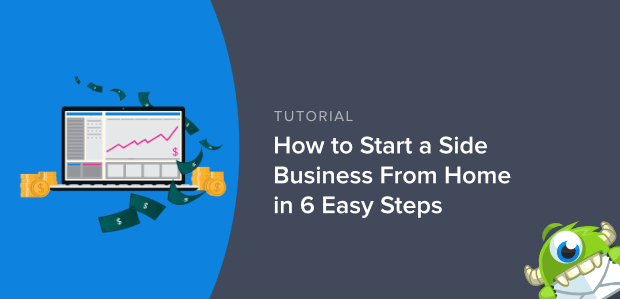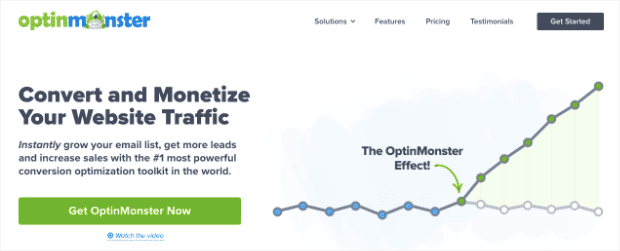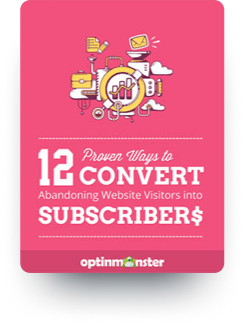Starting to go a little stir crazy? Don’t worry, most of us are. In fact, the tone of most social media posts lately feels like this:
But before going all Jack Nicholson from The Shining on everyone, why not take this time to learn how to start a side business from home?
In fact, if you give us just 10 minutes of your time, that’s exactly what we’ll show you how to do today. In this post, we’re going to cover why now is the perfect time to start a side business from home and the 6 steps it takes to get started.
By the end of this article, who knows? Maybe you’ll be on your way to a whole new career.
So log off Netflix for a few minutes, and let’s dive in!
Why Learn How to Start a Side Business at Home?
Many of us have dreamed of creating a business that allows us to do what we love from the comfort of our homes. Maybe you’ve even been sitting on a few great work-from-home business ideas.
But as circumstances have changed for many of us, starting your side hustle idea at this time is even more tempting.
And wouldn’t it be considering these 4 major benefits to being a digital entrepreneur:
- Enjoy a flexible schedule
- Be your own boss
- Work from anywhere
- Get paid to do what you love
Putting yourself in a position where you get all four of those is like finding the professional holy grail. And while you’re probably working a full-time job from home right now anyway, there’s never been a better time for bringing one of your small business ideas to life.
Plus, it’s not nearly as time consuming or expensive as you may think. As you’ll soon see, you can have your business ideas become a reality in the next 30 days by working on your lunch break and on a shoestring budget.
All it takes is just 6 easy steps to learn how to start a business from home!
How to Start a Side Business at Home in 6 Steps
1. Choose a Niche for Your Small Business Idea
Ever caught yourself pondering the question, “What are some business ideas I can do from home?” If so, there’s no judgment here. In fact, that question is where all great businesses start.
The first thing that you’ll need to do is write down a few working from home business ideas. Then, narrow that list down to the right one.
Fortunately, you probably already have one in mind.
But when you’re coming up with a few small profitable business ideas from home, you’ll want to ask yourself the following questions when making your business plan:
- Is this online business idea something that I love or just kinda like?
- Is there a need for this online business?
- Does this idea have the potential to make actual revenue?
- Could this small business build the kind of life that I want for myself?
- Do you find the work fulfilling?
That last one is particularly important. A side hustle should be something you’re passionate about that doesn’t feel too much like work. Now, let’s be clear:
Launching your business will definitely take some hard work.
But more often than not, the work you do for your online business from home should leave you feeling fulfilled and happy, not depleted and discouraged.
This is especially true if you’re juggling a full-time job, family, and other responsibilities at the same time.
If your business idea doesn’t give you a small twinge of excitement as you sit down to work on your next task, you may want to keep looking for a new idea.
2. Block out 30–60 Minutes per Day
Now comes the tricky part: finding the time to bring your small business (or small businesses) to life. Luckily, it’s not nearly as hard or time-intensive as you may think.
In fact, if you were to commit just 30–60 minutes every day for 30 days, you could have your new business up and running by this time next month.
Did You KnowYou can start a WordPress store online in as little as 30 minutes? Click here for our guide on getting started.
And more often than not, finding that time means 1 of 3 things:
- Waking up earlier
- Working through lunch
- Going to bed later
We know… none of those options are super fun. But when you’re passionate about your new business idea, none of those options should be deal-breakers, either.
It’s important to remember that if you’re just learning how to start a side business from home, you need to be as persistent as you are patient. Because more often than not, companies take a while to gain traction.
A perfect example of this is FedEx.
Though FedEx is now estimated at over $3 billion, it took years before they saw any profits. At the company’s lowest point, their CEO even had to fly to Las Vegas with his last $5,000. He ended up winning $24,000 which was just enough to buy him time to get another round of investor funding.
And, as you know, the company is currently thriving.
Now, we definitely don’t recommend that you fund your new business with gambling (you can mark that down as one of the worst ideas ever), but it’s a great example of persistence meeting patience.
If you want your new side project to succeed, you’re going to need a healthy amount of both!
So try working 15–30 minutes in the morning and 15–30 minutes before going to bed every night. Seeing as how the standard length of a TV show is 22 minutes, this may just mean skipping out on your favorite Netflix rerun for a month.
A very small price to pay for a new, exciting career!
3. Do Some Basic Market Research
Our third tip on how to start a side business from home is pretty standard business advice: do a bit of market research.
Now, when some people hear the word “market research,” they think of small focus groups, expensive online surveys, and, for some reason, people in lab coats with clipboards.
But that’s not the type of in-depth research we’re talking about.
Take one of your 30-minute chunks of time to look into your new market. Keep your eyes open for the following:
- Are there any other companies doing something similar, and, if so, can I do it better?
- If there aren’t any other companies with this product, why not?
- Is there really a need for this product or service?
Talk openly with friends and family about your idea. Get some initial feedback and tweak your business plan as necessary. Then, do a bit of research online. Look for any competitors and see how they’re modeling or pricing their product.
You can also go to social media sites that you’ll use for your business like Facebook or Reddit to post your idea in certain groups. Then you can gauge your idea based on their response. That said, be warned:
People on social media (especially Reddit) have a tendency to jump to the negative.
In other words, don’t let a stranger’s pessimistic outlook discourage you from pursuing your business. When it comes to using social media for market research, try to differentiate between good advice and needless negativity.
In our experience, you’ll likely get 2–3 rude comments for every 1 solid piece of advice. However, that 1 constructive criticism is usually worth a whole lot.
4. Build a Website for Your Online Business Idea
Now let’s get into the tangibles of starting a business. You’ve got your idea, you’ve blocked out some time, and you did some market research. Congrats! Let’s get building.
The first step will be to choose your platform. We think most people should go with a WordPress site and we aren’t shy about it.
WordPress is incredibly intuitive, has a thriving community for support, and all the WordPress plugins allow for seemingly infinite functionality.
Oh, and it’s super inexpensive which is always nice for side hustles. Especially when you’re trying to figure out the best business to start with little money.
We also recommend people go with a self-hosted WordPress site (meaning WordPress.org instead of WordPress.com). That’s because self-hosted WordPress sites:
- Have full theme support
- Allow plugins
- Don’t advertise WordPress on your site
- Let you monetize your site
- Give you branding freedom for both professional and personal brands
And loads of other benefits. Since the average cost of a WordPress site is $46–$100 per year, there’s almost no reason not to go the self-hosted route.
NoteFeeling a little lost? Don’t let building your first WordPress site intimidate you! Instead, here’s a step-by-step guide on how to build a WordPress site. And if you’re ever in doubt, check out the WPBeginner website. They have everything you need to become a WordPress pro!
But, of course, if you decide to self-host, you’ll need to find the host! Luckily, we’ve got you covered there, too.
We highly recommend using Bluehost to host your WordPress site.
Bluehost is affordable, reliable, and super fast with excellent customer service. You can get your domain name straight from their site or transfer a previously purchased domain to them.
You can click here for a more in-depth review of Bluehost. We also have a full tutorial on how to build a small business website.
5. Create a Marketing Strategy for Your Side Hustle
When you’re figuring out how to start your own business, you probably think of two things: building a website and making sales.
Most people don’t instinctually think about the fun part. Well, at least we think it’s the fun part:
Building a marketing strategy.
You’ll need to come up with a marketing strategy that suits your business. Here’s the good news: that’s definitely our wheelhouse.
So let’s look at a few basic things you can start doing to build your new business from home. We’re going to break down our advice into 4 sections:
- Content marketing
- Advertising
- Social media marketing
- Email marketing
While there will be some overlaps between these sections, they can each arguably be used individually to drive traffic to your site. And at the end of each part, we’re going to create a curated list of articles we’ve written to help you along the way.
Content Marketing
Content marketing is exactly what it sounds like: using original content to drive traffic to your site and get more leads. But the kinds of content you choose to create are totally up to you.
One good place to start is by building a blog. Blogs are excellent because they help you do many things to move your business forward at the same time. Blogs can:
- Engage your audience
- Establish your credibility in your niche
- Open up doors for affiliate revenue
- Monetize your site through ads
- Drive organic traffic through SEO
- Show interested readers targeted campaigns for your product
- Force you to learn new aspects of your industry
Blogs are, in our opinion, the cornerstone of content marketing, especially if you’re just learning how to start a side business from home.
Need some help brainstorming blog ideas? Here are 103 blog post ideas your readers will love.
But maybe you’re not big on the idea of blogging. That’s ok! You have so many different options for content creation, such as:
- Videos
- Infographics
- Images
- Memes
- Podcasts
- Webinars
- Email series (which we’ll discuss later)
- EBooks
- Whitepapers
- Newsletters
- Press Releases
- Surveys
- Checklists
- Free apps
- Powerpoint Presentations
As you can see, when it comes to content creation, you’ve got loads of options.
We highly recommend spending a little bit of time per day working on some type of content to drive traffic. At the end of this post, we’ll get into more detail on how to convert that traffic into leads.
For now, check out our top 5 articles on how to master your content marketing strategy:
- The Ultimate Beginner’s Guide to Content Marketing
- 11 Steps to Create a Content Marketing Strategy to Grow Your Business
- 25 Clever Content Marketing Examples With Amazing Results
- The Content Marketing Toolbox: 55 Tools You Need to Know
- 85 Content Marketing Statistics to Make You a Marketing Genius
These should be more than enough to get you started!
Paid Advertising
This solution is less appealing for small to medium-sized businesses because let’s be honest, most of us don’t have tons of money to spend on paid ads.
But, if you have a few hundred dollars extra per month, paid advertising is a really good option. Right now, here are the 4 most popular platforms for running ads:
- Google AdWords
- Facebook Ads
- Instagram Ads
- LinkedIn Ads
You’ll want to do some research on the best place to run ads for your specific business. Unfortunately, there’s no “right” or “wrong” answer here. It really depends on your products, your offers, and your audience.
Whichever platform you choose, we highly recommend that you run an A/B split test for your paid ads. Well, to be honest, we recommend A/B split tests for most areas of your marketing strategy but paid ads especially.
That’s because you want to be sure you’re getting the best bang for your buck. The most efficient way to do that is to test, tweak, and wait.
As we like to say, successful advertising on paid platforms is a healthy mix of creativity, cold hard data, and patience.
Check out these 4 helpful articles on improving your paid ads on various platforms:
- What’s a Good Click-Through Rate (CTR) on Google Ads and How to Improve It
- Optimize Facebook Ads to Drive Conversions
- Generate Leads With Instagram (specifically tip #1)
- Boost the ROI of Pay Per Click (PPC) Campaigns With Targeted Optins
Social Media Marketing
If you had to guess, how many social media platforms would you say exist right now?
10? Maybe 15? The answer may surprise you: there are over 65 different social media platforms to choose from.
Which is great news for you.
You’ll be able to drum up some awesome traffic by working on your social media presence. We recommend choosing a few platforms for your target audience and consistently engaging there.
The big 4 platforms right now are:
But don’t pigeonhole yourself if that’s not where your audience is. We’ve seen companies get loads of success with Pinterest, Reddit, Quora, and many others.
Determine which social media platform is right for your new side project, and start hanging out there. If you need help with pre-scheduling posts, here are a few tools you can use:
☝️ That last one is totally free, too. So that’s cool.
Read through these helpful articles on how to improve your social media marketing strategy:
- The Best Social Media Platforms for Your Business
- The Best Time to Post on Social Media for the Highest Engagement
- 33 Social Media Marketing Tools That Will Give You an Unfair Advantage
- 9 Ways to Grow Your Email List With Social Media
- Email Marketing vs. Social Media: Is There a Clear Winner?
Email Marketing
Ok, so if marketing strategies are our wheelhouse, then email marketing is our wheelhouse’s wheelhouse.
To put that more simply, we’re really freakin’ good at email marketing. And we’ve written extensively on the subject.
We love email marketing because it’s:
- Inexpensive
- Reliable
- Customizable to your brand and your brand’s voice
- Automated
- Targeted to an engaged audience
- Suited for nurturing long term relationships
- Impressively effective for building revenue
More than any other platform, we believe that email marketing is the key to a business truly thriving and reaching their potential. Like the other sections in this article, we’ll finish up here by adding a short resource list to help you out.
But first, let’s look at the basic 6-step formula for a solid email marketing strategy.
1. Create a killer lead magnet
2. Drive traffic to your site
3. Use a conversion optimization software to grow your email list
4. Segment your list to personalize your emails
6. Sit back and watch your sales go BOOM 💥
Seriously, email marketing is just that simple. It’s not always easy, but it’s simple.
Now use the following resources to take yourself from amateur to email marketing master:
- Email Marketing Made Simple: A Step-by-Step Guide
- How to Run a Successful Email Marketing Campaign
- 17 Tips for Writing Email Copy That Converts
- 6 Email Marketing Templates You Need to Try Right Now
- 13 Ways to Improve Your Email Click-Through Rates
- Is Email Marketing Dead? Statistics Say “Not a Chance”
- Email Scrubbing: Why and How to Clean Your Email List
6. Monitor Your Success
Ok, now comes the really, really fun part. Earning your first few customers.
There are few thrills in life greater than creating something and watching it bring value to people’s lives. As you build out your marketing strategy, you’ll soon see customers engage with your business.
One thing you need to be doing is monitoring and tracking that influx of traffic. For that, there’s no better tool than MonsterInsights.
MonsterInsights is the best plugin to monitor everything about your site’s performance and traffic. It connects seamlessly with Google Analytics so you can receive all the data about your site’s visitors right in your WordPress dashboard.
You can even set up custom reports to get everything you need to make data-driven decisions about your business.
And as you watch all that traffic start coming in, you need a strategy for optimizing your conversions. That’s where a conversion optimization software like OptinMonster comes in really handy.
OptinMonster can help you turn your casual site traffic into lifelong customers. We do that by helping you create targeted campaigns that will catch your reader’s attention. With our software, you can:
- Grow your email list
- Advertising promotional offers
- Set static or dynamic countdown timers
- Display useful site or product information
- Lock premium content for subscribers only
- Create full-page campaigns that function as targeted landing pages
And all of that is the tip of the iceberg.
Each of our highly customizable campaigns is perfect for all of your site’s traffic, including those visiting from mobile devices.
So if you’re serious about watching your side business succeed, then you should definitely invest in some kind of conversion optimization toolkit. And if you’re going to do that, OptinMonster should be at the top of your list!
But before anything, we want to hear directly from you. Do you have any tips on how to start a side business from home?
Reach out to us on Facebook, Twitter, or in the comment section to let us know. And for even more helpful tutorials on improving your new business ideas, check out our YouTube channel.
And when it comes to growing your business, a lot can be learned from the old adage:
The best time to plant a tree was 20 years ago. The second best time is today.
So don’t put it off any longer and start boosting your conversions right now. Join the OptinMonster family today!




















Add a Comment